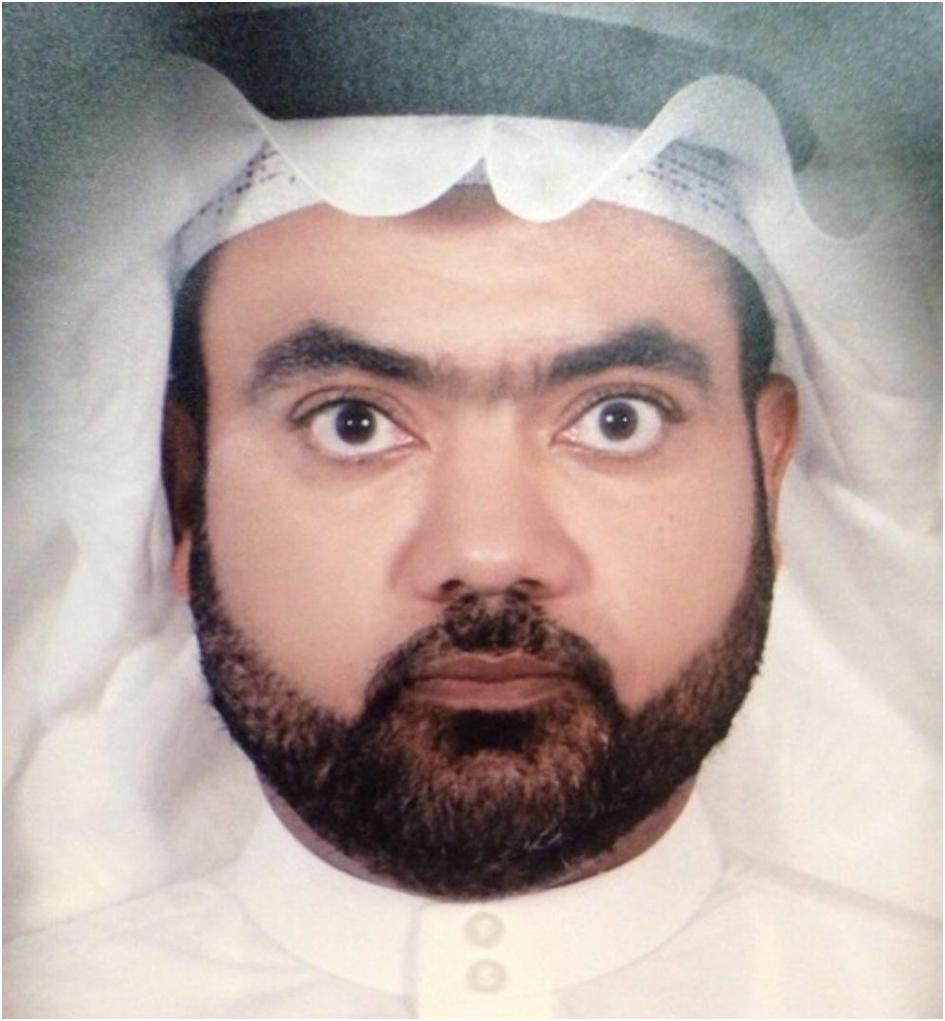
Today, the United Nations Working Group on Arbitrary Detention (WGAD) published an Opinion on the case of Abbas al-Hassan, a Saudi man who was arrested in 2013 and executed on 23 April 2019. The WGAD found his detention to have been arbitrary and unlawful, in violation of his right to a fair trial, his right to freedom from torture and his right to life, among other violations.
It also expressed “shock, dismay, and outrage” that he was executed while its request for information from the government about his case was outstanding. Lastly, it called on the Saudi authorities to return his body to his family, something they have refused to do for five months since his execution.
Abbas al-Hassan was a father of four from al-Ahsa in Saudi Arabia’s Eastern Province. Agents from the General Directorate of Investigations (GDI) arrested him without a warrant in June 2013, and took him to Al-Ha’ir Prison in Riyadh, where they denied access to a lawyer and tortured him to produce a confession.
The authorities held him without charge for almost three years. He was then charged with “espionage” and “spreading the Shia faith,” among a list of other alleged non-lethal crimes. In December 2016, Saudi Arabia’s Specialised Criminal Court (SCC) sentenced him to death along with 11 others, partly on the basis of his coerced confession. His sentence was upheld in the SCC Court of Appeal in July 2017 and again in the Saudi Supreme Court in January 2018.
Saudi Arabia executed Abbas, along with 36 other men, on 23 April 2019: the largest single-day execution in Saudi Arabia since 2016. The families were not notified of the executions until after they had already taken place. UN High Commissioner for Human Rights Michelle Bachelet strongly condemned the executions, and the European Union External Action Service (EEAS) similarly raised concerns.
Many of the families have encountered difficulty in obtaining death certificates, personal effects, and the remains of their executed relatives. The WGAD noted that Mr. al-Hassan’s family were instructed not to hold a funeral for him, and were threatened and followed by security forces. They have still not received his remains, despite repeated requests. ESOHR has documented at least 83 such cases to date.
Husain Abdulla, Executive Director of ADHRB, said: “Mr. al-Hassan’s case is an unfortunate example of the cruelty of Saudi Arabia’s judicial system, as well as the Saudi government’s – led by Crown Prince Mohammed bin Salman – complete disregard for human rights and international obligations. Multiple United Nations experts have commented on his case, and the government knew that his case was pending before the Working Group, yet Saudi Arabia carried out his execution anyway. Saudi Arabia’s continued membership on the Human Rights Council is a blight on the institution, and makes a mockery of the international human rights system. Close partners like the Trump Administration are essentially aiding and abetting these massacres.”
Ali al-Dubisy, the Executive Director of ESOHR, said: “That the Saudi government would carry out an execution despite substantial and credible allegations of torture represents an all-too-familiar miscarriage of justice – one that has become increasingly common in their ghastly campaign against human rights. Their failure to return Mr. al-Hassan’s remains to his family – presumably to just instead dump his body in a pauper’s grave – compounds upon the horror.”
Maya Foa, the Director of Reprieve, said: “The Saudi government’s refusal to return Abbas al-Hassan’s body to his family is telling. This is a regime so callous, so scared of dissent and so confident it can break international law with impunity that it continues to violate the rights of its citizens even after it has killed them.”
Notes to editors:
- ADHRB, ESOHR and Reprieve were the source of the complaint to the WGAD. They welcome the Opinion of the Working Group, and emphasize the need for Mr. al-Hassan’s remains to be returned to allow for a proper burial, and for his family to be justly compensated. We call to fully investigation on all the allegations of torture, with a view to holding the perpetrators accountable; to impose a moratorium on the death penalty pending a full and immediate review of death row to identify all death sentences handed down unlawfully, including in the cases of juvenile defendants and all trials that failed to uphold basic fair trial and due process rights; to commute all death sentences handed down unlawfully; to initiate immediate, transparent investigations into all allegations of torture arising out of capital trials, and to commute the death sentences and grant the immediate release of Ali al-Nimr, Dawood al-Marhoon, and Abdullah al-Zaher, who were all convicted in the SCC of crimes that took place when they were juveniles.
- 2.The WGAD is one of the Special Procedures offices of the UN Human Rights Council. As part of its regular procedures, the Working Group sends allegation letters to governments concerning credible cases of arbitrary detentions, and may also render opinions on whether an individual or group’s detention is arbitrary and in violation of international law.
- Abbas al-Hassan’s case was previously covered by the UN Special Procedures bodies in communications UA SAU 7/2017, UA 1/2018, and a press release on 15 March 2018.
- Please see the WGAD Opinion 56/2019 in full here.
